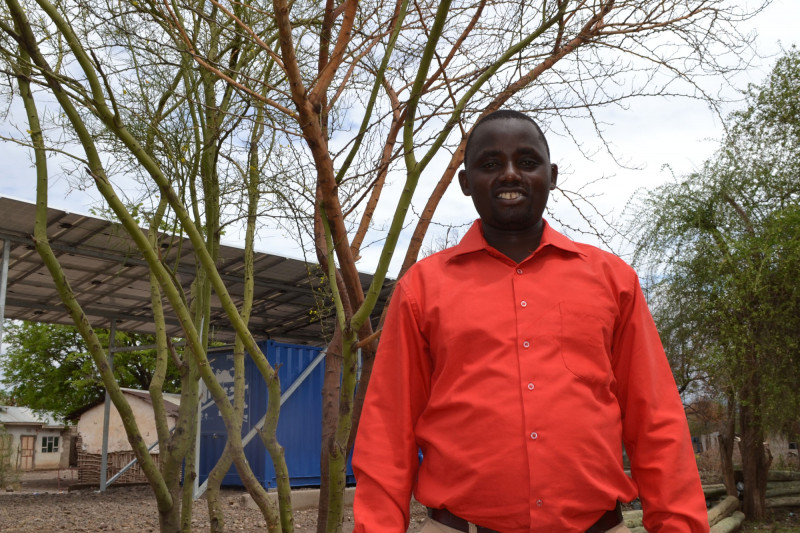Kathryn Burnham | January 16, 2017
To reach Ketumbeine, you travel 85 kilometres north from Arusha, in northern Tanzania. After leaving the paved road, it’s a few more kilometres along a bumpy dirt road to reach the village, which pastoralists and farmers call home.
The road is no longer as dry and dusty as it once was, but it’s also not at muddy at it could be. The rainy season was late and little rain fell this year.
Lucas Laizer Ndoros is a pastoralist living in Ketumbeine. He keeps cows, goats, donkeys, sheep, and chickens. Lately, Mr. Ndoros has been using a new tool to increase his chances of finding good grazing for his animals: radio.
Farm Radio International has been working with Orkonerei Radio Service in Simanjiro district to broadcast weather information to the Maasai people living in Longido district, where Ketumbeine is located. Many are pastoralists, although some also plant maize and beans.
The weather information on ORS FM is targeted to this area, and specifies exactly where rain is expected in the large area of Longido.
Mr. Ndoros says this information has been helpful because he knows in which direction to herd his animals, which increases his chances of finding good grazing.
For example, on one November day, his animals were 15 kilometres away from Ketumbeine, over some hills in an area where it recently rained. On another day, his animals might be closer to home—or kilometres away in another direction.
Knowing the weather forecast also helps pastoralists plan how many animals to keep. Healthier animals fetch a better price. If little rain falls over a few weeks, animals weaken. When Mr. Ndoros knows that his animals will be stressed by a lack of rain, he sells a few to buy food. But when he knows that an abundance of rain will come soon, he keeps his animals until they are healthier.
The Tanzanian meteorological agency announced that nine regions received below average rainfall between October and December. These regions are home to more than 21 million livestock, which are now at risk of dying because of a shortage of pasture and water. Pastoralists are being advised to store feed for the dry season and to slaughter animals while they are in good condition. They are also being advised to keep only as many livestock as the grazing land can sustain.
Lekishon Kaika is a pastoralist who also lives in Ketumbeine. The 32-year-old is the chairperson of the village and gets weather information any way he can: over the radio, from television, and through a mobile service set up by Farm Radio International, known as Beep4Weather.
Mr. Kaika says Beep4Weather is useful because he can use it to receive weather information even when he is away from home. The 10-day forecast shared by ORS FM allows him to plan, and to advise others in Ketumbeine.
Mr. Kaika is using the weather information to develop a new business strategy. He sorts his animals by whether they are weak or strong. If it has not rained anywhere nearby, he takes only the healthy animals on a long trip to find good pasture. The weaker animals graze closer to home until they are healthier or until it rains somewhere nearby.
Unfortunately, with the delayed rainy season, Mr. Kaika’s animals were not very productive and gave him little milk. But he says the weather information will help him be more productive in the future—so long as the weather is also good.
With files from The Citizen.
